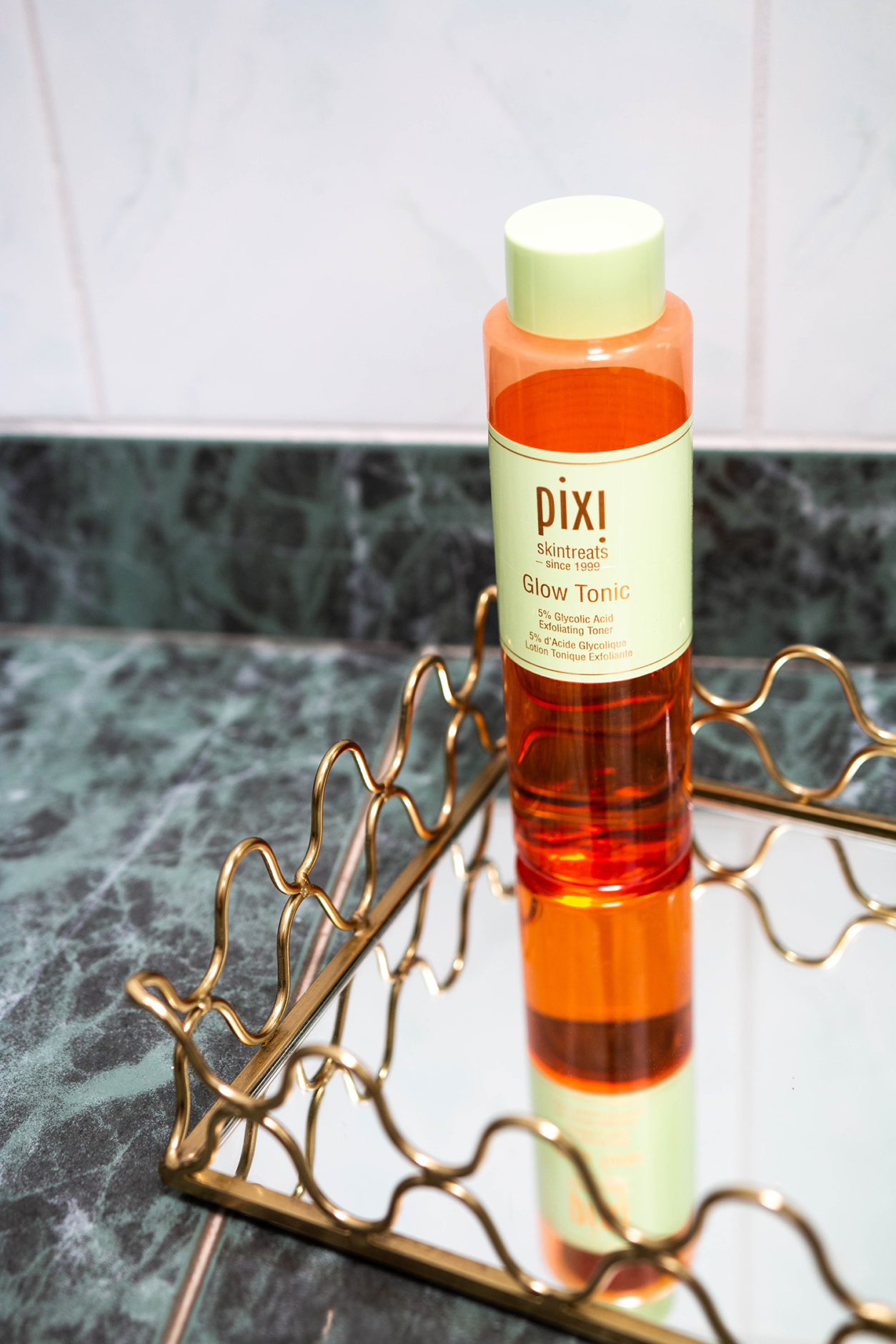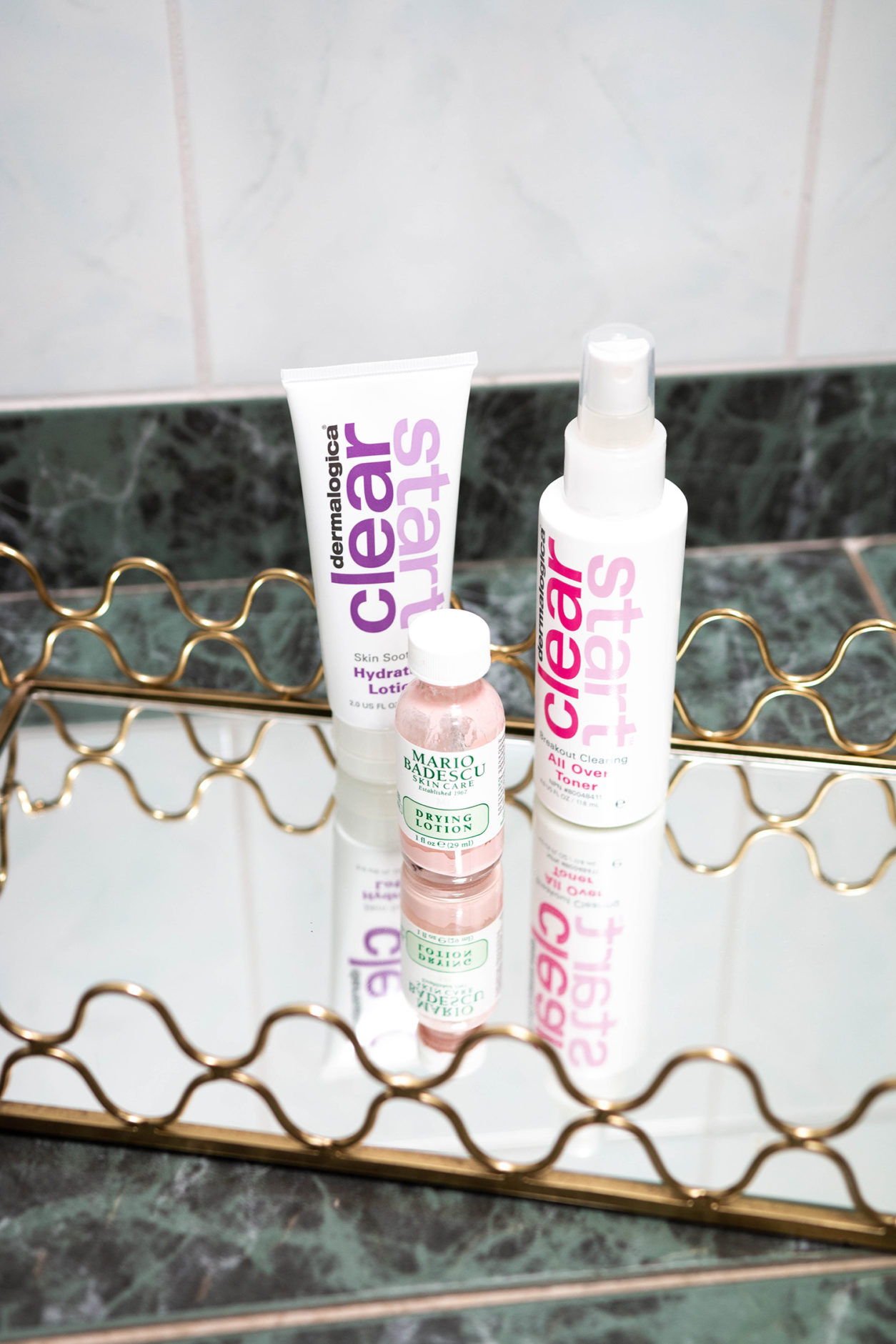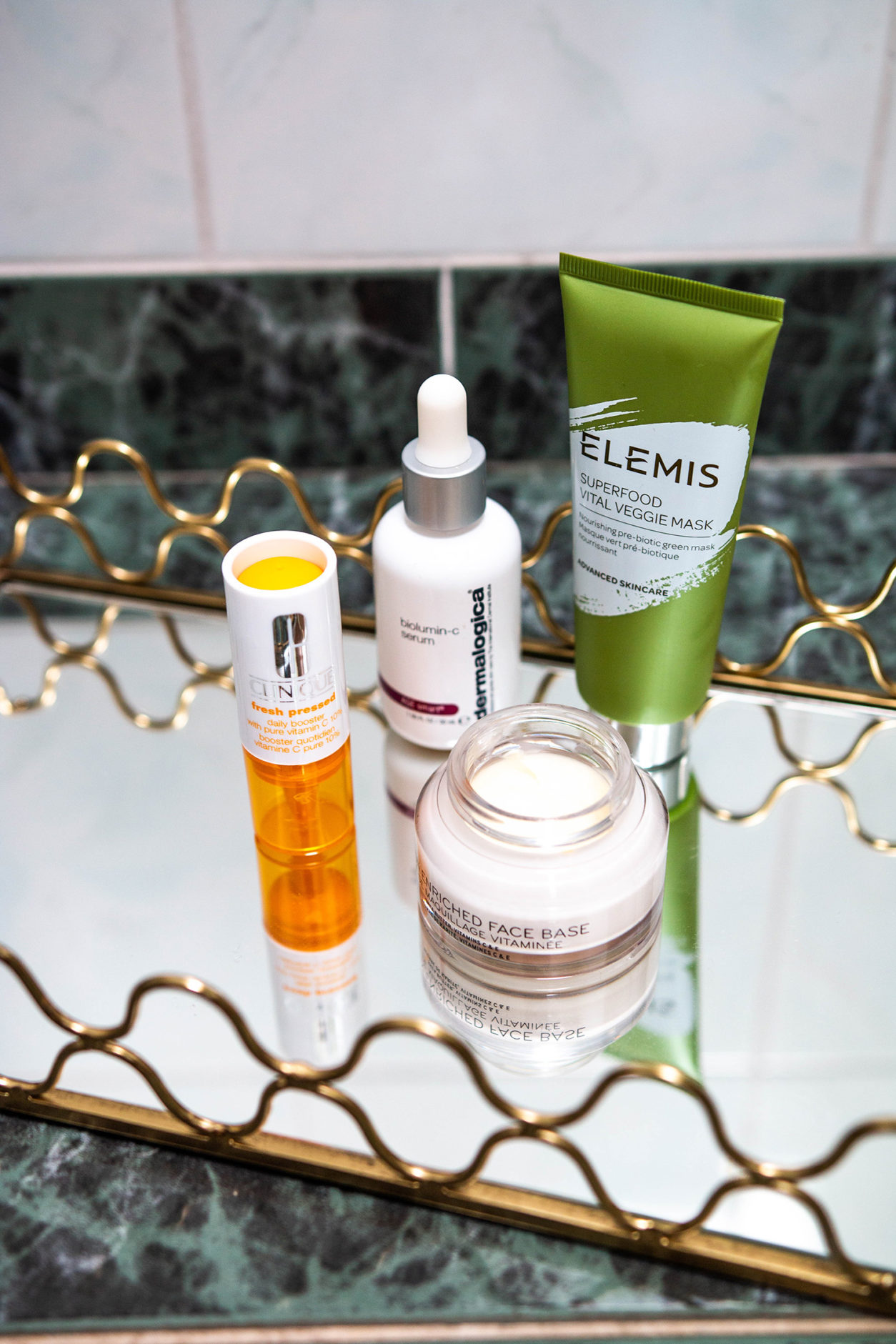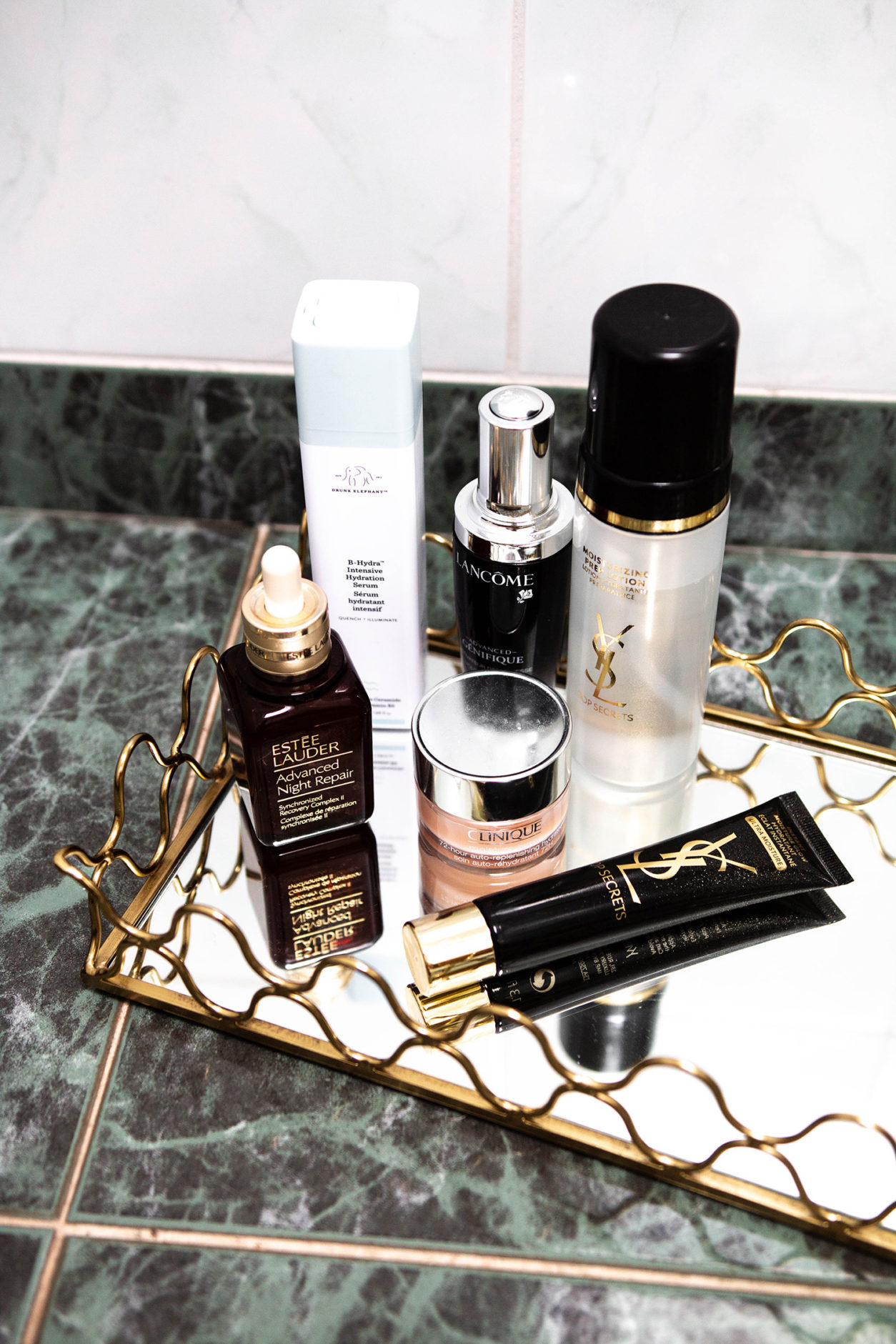The Key Skincare Ingredients You Need to Know About
The Key Skincare Ingredients You Need to Know About
The beauty industry has changed drastically over the last 5 years and the best part is, we are the ones who benefit the most.
We as consumers are getting smarter and with the power of the internet and social media, we have been able to educate ourselves about the good and bad beauty ingredients that were completely unknown 10 years ago. The best part is that brands know this and they now know that they can’t get away with putting crap in our skincare products, what’s happening is that they are competing with each other more and more to produce the next scientific ‘WOW’ ingredient that’s going to become global beauty’s biggest trend.
We must continue educating ourselves so we can continue seeing better and better quality in skincare products in the future, so that’s why I’m here, because skincare can be CONFUSING but lucky for you it’s my favourite thing to learn about!
You probably see ingredients such as Retinol (vitamin A), Glycolic and Hyaluronic Acid get thrown about on social media by skincare influencers and brands, but it can get super confusing to understand exactly what ingredient does what, whether it’s something you need, or just what to look for when purchasing products so that you can purchase a more tailored skincare routine that is going to give you results!
EXFOLIATION
First of all, let’s all understand the importance of acid exfoliation.
Don’t be afraid of the word ‘acid’, our skin is literally MADE UP of acids.
Acids work by breaking down the ‘glue’ that holds dead skin together to avoid skin clogging congestion which results in oily skin and acne. This means that they work to reveal glowwy skin, help to rid of pigmentation and acne scarring quickly and help to delay the process of ageing by frequently smoothing out the skin. Because this top layer of unwanted skin that is built up daily will be shed away, it also means that the rest of your skincare products such as your toner, serum and moisturiser are going to work better. A lot of people don’t realise that if they aren’t exfoliating, they aren’t getting the most out of their products.
The reason I prefer acid exfoliants rather than traditional exfoliants (sugar scrubs etc) is because they’re much more gentle BUT far more effective. It’s a win win!
Lets dive into the three main acid exfoliants - Glycolic, Lactic & Salicylic acid.
Glycolic Acid
What is it?
Alpha Hydroxide Acid (AHA)
What does it do?
It gets rid of dead skin cells from the top layer of the skin downwards to help avoid congestion and allows your other products to work better and absorb deeper down to the bottom layers of their skin, it reveals that glowwy skin that everyone is striving for.
When do you use it in your routine?
In the PM
My recommended products:
Lactic Acid
What is it?
The more gentle version of Glycolic: another type of Alpha Hydroxide Acid (AHA).
What does it do?
It penetrates the top of the skin but better for those with slightly more irritable and sensitive skin. It is not as active as Glycolic, it is much more gentle however it is more moisturising, so great for those wanting an acid exfoliation who often experience sensitive skin reactions to active skincare products.
When do you use it in your routine?
In the PM
Salicylic Acid
What is it?
Beta Hydroxy Acid (BHA)
What does it do?
Salicylic acid is known to help dry and heal breakouts. It penetrates deeper into the pore lining to really target the root problem, it’s also a very calming ingredient making it so fantastic for healing congestion and acne. It has amazing Anti-inflamtatory and anti-bacterial properties.
When do you use it in your routine?
AM and/or PM
My recommended products:
(Available from Life Pharmacy)
Retinol
What is it?
Vitamin A
What does it do?
Retinol is an anti-aging ingredient that you need to proceed with caution with the most. Retinol is any form of Vitamin A, it’s an antioxidant, helps cell turnover and promotes the production of collagen. It’s fantastic for prolonging the ageing process, maintaining healthy skin, and it helps shed dead skin cells from the bottom layers.
Start slow and build up your use of retinol, start by using it once a week, then twice, then three times a week and build it up until you can use it every day without your skin freaking out. If you’re also using an AHA, alternate the nights you use your AHA & your Retinol. It’s effective for people with acne because it works under the epidermis layer where the root of the problem is with acne. This is the best option for those with adult acne who also are concerned about ageing skin!
When do you use it in your routine?
In the PM
Can you use retinol with A/BHA’s?
Yes because AHA/BHA’s work at the top and Retinol works from the bottom skin layer, you just have to be really careful and ease your skin into getting used to the application of both. Use them together once a week, and every other day just use one or the other!
My recommended products:
(this cleanser is INCREDIBLE and helped clear up my acne a couple of years ago!)
Dermalogica Clear Start Breakout Skin Soothing Hydrating Lotion
Mario Badescu Drying Lotion (for spot treatment)
BRIGHTEN
Vitamin C
What is it?
Vitamin C as you know it!
What does it do?
Vitamin C is an antioxidant with anti-inflammatory properties, it’s a melanin (skin pigment) inhibitor so it helps to brighten your skin and fades away pigmentation caused by sun damage, it smooths the skins texture and improves the overall feel and look of your skin. It also helps to defend skin from sun damage and actually helps your sunscreen to work even better!
When do you use it in your routine?
AM or PM, if you are also using Retinol or AHA’s at night, use your Vitamin C in the morning
My recommended products:
(also includes exfoliating enzymes, I love this stuff and have gone through two bottles)
HYDRATE
Hyaluronic Acid
What is it?
An acid found in our skin that connects all of the skin tissue together
What does it do?
It maintains hydration and plumpness to the skin, using it in your skincare routine will give your skin a huge boost of hydration and I personally think everyone needs it in their routine regardless of skin type! Just like collagen, as we age we lose our naturally produced hyaluronic acid which leads to dryer skin and wrinkles, this is why mature skin is often dryer. One molecule of hyaluronic acid can hold up to 1000 times its own weight in water so it is the perfect boost of hydration to give our skin every single day to keep it plump and glowwy!
We need moisture in our skin because our skin is our largest organ and it acts like a sponge. For example, a sponge is dry and small without water and when you add water is plumps up and is juicy and full, which is what healthy, hydrated skin should look and feel like after using hyaluronic acid (drinking lots of water helps too! this is why you look tired if you forget to drink water for a day).
When do you use it in your routine?
AM and/or PM
My recommended products:
For makeup prep:
SPF
The most important skincare lesson of all is to ALWAYS use an SPF if you are using Acids, Retinol or Vitamin C in your skincare routine.
You must be wearing SPF on your face every single day. YOU CAN NOT use acids, Vitamin C or Retinol in your skincare routine without wearing SPF during the day otherwise you are completely vulnerable to the most savage sun damage you could ever imagine.
My recommended products:






